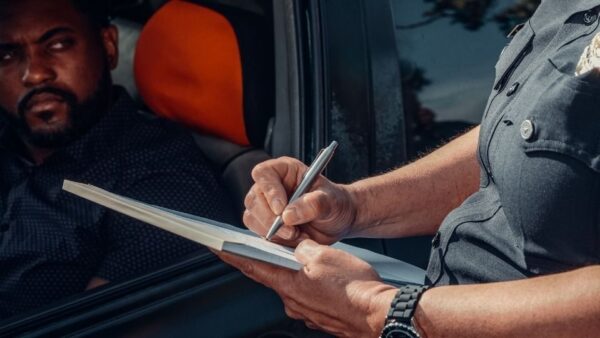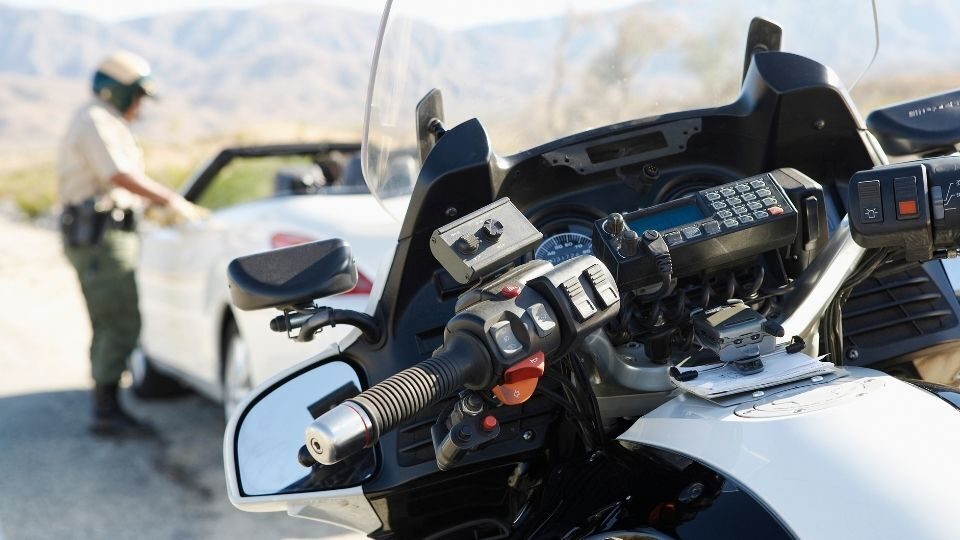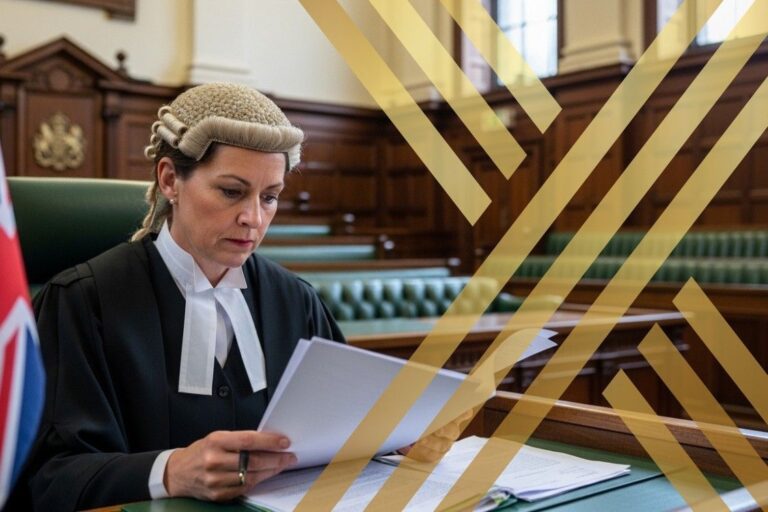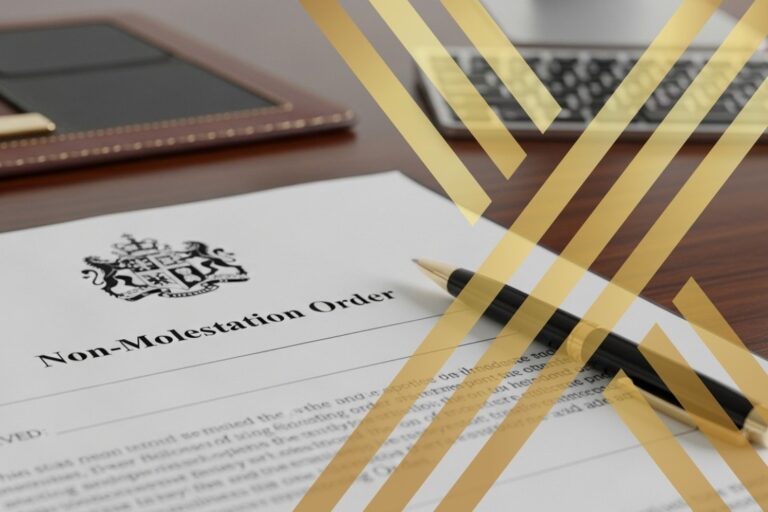Being stopped by police in the UK can happen unexpectedly. It may occur while driving, walking, or even during routine checks. Regardless of the situation, how you respond matters not only for your immediate safety but also for protecting your legal rights.
At Axis Solicitors, we frequently advise clients who have faced difficulties during police stops. Many individuals are unsure of their obligations, which can lead to misunderstandings or even escalation. This guide explains exactly what to do, what not to do, and how to ensure your rights are respected under UK law.
Understanding Police Powers in the UK
When you are stopped by police in the UK, it is not random. Police officers operate under defined powers given by legislation. Knowing these powers helps you understand why you may have been stopped and what authority the police have in that moment.
The Legal Basis for Police Stops
Police powers to stop and question people stem from laws such as:
- Police and Criminal Evidence Act 1984 (PACE)
- Misuse of Drugs Act 1971
- Terrorism Act 2000
- Road Traffic Act 1988
Each of these laws grants specific powers. For example, under PACE, officers can stop and search a person if they have “reasonable grounds” to suspect they are carrying illegal items. Under the Road Traffic Act, motorists can be stopped at any time for checks relating to licensing, insurance, or roadworthiness of a vehicle.
When Can Police Stop You?
You may be stopped by police in several circumstances, including:
- While driving a vehicle for routine checks.
- In public areas where officers suspect criminal activity.
- At transport hubs such as airports or train stations under terrorism legislation.
- During stop-and-search operations targeting specific offences like possession of drugs or weapons.
Your Rights During a Stop
When stopped by police, you have important rights. Officers must:
- Identify themselves by name and station (unless in uniform).
- State the reason for the stop.
- Explain the legal power they are using.
- Provide a record of the stop or instructions on how to obtain one.
If these requirements are not met, the stop may be unlawful, and you could later challenge it with legal assistance.
What to Do When Stopped by Police
If you are stopped by police, your actions and words can significantly affect the outcome. While you may feel anxious or even unfairly targeted, keeping calm and following the right steps protects you legally and personally.
Stay Calm and Composed
The first rule when stopped by police is to remain calm. Raising your voice, showing aggression, or attempting to walk away can escalate the situation. Even if you believe the stop is unjustified, maintain composure until the encounter is over.
Cooperate but Know Your Limits
You should cooperate with lawful instructions. For example, if asked to provide your name and address during certain checks, it may be a legal requirement. However, you are not obliged to answer every question. Unless you are under arrest or subject to specific statutory requirements, you can remain silent beyond providing basic details.
Ask for Clarification
If unclear why you have been stopped by police, politely ask:
- “Am I being detained?”
- “Under which law are you stopping me?”
- “Am I free to leave?”
This shows you understand your rights and ensures officers explain their actions.
Keep Communication Respectful
Polite communication goes a long way. Even if officers appear confrontational, responding respectfully makes it harder for them to justify escalation. Remember, your behaviour could later be referenced in a police report or legal proceedings.
Record the Interaction Where Possible
You have the right to record your interaction with police in a public place, provided you do not obstruct them. If you are stopped by police and feel uneasy, discreetly filming or taking notes can help protect you later.
What Not to Do When Stopped by Police
Just as important as knowing what to do when stopped by police is knowing what not to do. Many individuals make mistakes in the heat of the moment, which can turn a routine stop into a serious legal problem.
Do Not Resist or Obstruct
Physically resisting or obstructing a police officer can lead to arrest for obstruction or assaulting an officer, even if the stop itself was questionable. Keep your movements visible and avoid sudden gestures that may be misinterpreted.
Do Not Lie or Provide False Information
When stopped by police, giving a false name, address, or details is a criminal offence. Even a small lie can damage your credibility and lead to charges of obstructing the police. If you prefer not to answer a question, it is safer to politely decline than to fabricate information.
Do Not Argue Aggressively
Challenging police powers aggressively on the street rarely works in your favour. If you believe you were unlawfully stopped, the correct place to challenge it is later, through a solicitor or complaint procedure, not during the encounter.
Do Not Refuse Lawful Instructions
If officers ask you to step out of a vehicle, show your driving licence, or provide a breath test under the Road Traffic Act, refusing may itself be an offence. Even if you intend to dispute the legality later, compliance in the moment prevents additional charges.
Do Not Self-Incriminate Without Legal Advice
Anything you say when stopped by police could be recorded and used against you. Avoid volunteering information beyond what is legally required until you have consulted a solicitor. You are entitled to legal advice before answering substantive questions.
Do Not Assume All Stops Are the Same
Different laws give police different powers. A stop under the Terrorism Act, for example, grants broader powers to officers than a standard traffic stop. Avoid assuming you know what applies — instead, ask calmly which power is being used.
Different Types of Police Stops in the UK
Being stopped by police can take different forms depending on the circumstances. Understanding these scenarios helps you know what to expect and how your rights may differ.
1. Vehicle Stops
Under the Road Traffic Act 1988, police have the authority to stop any vehicle at any time. Unlike stop-and-search powers, they do not need reasonable suspicion. Officers may check:
- Driving licence and insurance details
- Vehicle roadworthiness
- Evidence of drink or drug driving
- Outstanding offences connected to the vehicle
If you are stopped by police while driving, you must provide your name, address, and proof of driving entitlement. Refusal can result in arrest. However, you do not need to answer questions unrelated to the stop without legal advice.
2. Stop and Search
Police can stop and search individuals in public if they have “reasonable grounds” to suspect possession of:
- Illegal drugs
- Weapons
- Stolen property
- Items that could be used to commit crime
Special powers under the Terrorism Act 2000 or Public Order legislation can allow searches without suspicion in designated areas. If you are subject to a stop-and-search, officers must provide:
- Their name and station (unless in uniform)
- The reason for the search
- The legal power they are using
- A record of the search
3. Public Order Stops
During protests, marches, or large gatherings, police may stop individuals to prevent disorder. Under the Public Order Act 1986, officers can impose restrictions, conduct searches, or demand dispersal from certain areas.
4. Border and Terrorism Stops
At airports, ports, or transport hubs, officers may stop and question individuals under the Terrorism Act 2000 without reasonable suspicion. In these situations, you are legally required to cooperate with identity checks and questioning, but you still retain the right to legal representation if detained.
5. Immigration Stops
Immigration officers, often working with police, may stop individuals where there is reasonable suspicion of immigration offences. While cooperation is important, you should not provide additional information without first seeking legal advice, as this could affect your immigration status.
Your Rights and Legal Protections When Stopped by Police
When you are stopped by police, you do not lose your rights. UK law provides safeguards to ensure that officers act lawfully and proportionately. Understanding these protections is key to preventing misuse of police powers.
Right to Know the Reason for the Stop
Officers must clearly state the reason for stopping you. If you are searched, they must also explain the legal power authorising the search. If this information is not provided, the stop could be unlawful and open to challenge.
Right to Basic Respect and Fair Treatment
Even if you are stopped by police under suspicion, you are entitled to fair treatment. Officers must not discriminate against you based on race, religion, gender, age, or any other protected characteristic. Unlawful discrimination can form the basis for a complaint or legal claim.
Right to Remain Silent
Unless you are under arrest or specific statutory duties apply (such as providing driving documents), you are not obliged to answer general questions. Politely stating that you prefer not to answer is lawful. Remaining silent protects you from accidentally incriminating yourself.
Right to Legal Advice
If you are detained or arrested, you have the right to consult a solicitor before questioning. This right is free of charge at the police station. If you are concerned during a stop that may escalate into detention, requesting legal advice early is always wise.
Right to a Record of the Stop
When you are stopped by police and searched, officers must provide a written record or instructions on how to obtain one. This record should include details such as:
- Time, date, and place of the stop
- Officer’s name and station
- Reason for the stop and search
- Outcome of the encounter
This document is essential if you later wish to challenge the lawfulness of the stop.
Protection Against Unlawful Detention
Police cannot hold you indefinitely. Detention without charge is subject to strict time limits, usually 24 hours for most offences, extendable to 36 or 96 hours in serious cases, and up to 14 days under terrorism legislation.
Step-by-Step Guide: How to Handle Different Types of Police Stops
Being stopped by police can take different forms, and the right response depends on the situation. Below is a breakdown of what you should do in common scenarios.
1. Vehicle Stops
- Pull over safely as soon as you are signalled.
- Keep your hands visible and remain seated unless asked to step out.
- Provide your driving licence, insurance details, and MOT certificate if requested.
- If asked questions beyond road traffic matters, politely say you’d prefer to seek legal advice before answering.
- If subjected to a breath or drug test, comply immediately — refusal is an offence.
2. Stop and Search
- Ask politely: “What is the legal basis for this search?”
- Allow the search to proceed without resistance.
- Note the officer’s name, badge number, and station.
- Request a copy of the search record before leaving.
- Do not argue on the street if you believe it is unjustified — document and seek legal advice afterwards.
3. Public Order Stops (e.g. protests or gatherings)
- Stay calm and comply with dispersal orders if issued.
- If searched, follow the same procedure as a stop-and-search.
- Avoid confrontations with police or other members of the public.
- If issued with a fixed penalty notice or dispersal order, keep the paperwork safe for later legal advice.
4. Terrorism-Related Stops (ports, airports, public areas)
- Understand that police have broader questioning powers under the Terrorism Act 2000.
- You must provide identification and cooperate with basic questions.
- Ask politely if you are being detained or questioned under Schedule 7.
- If detained, immediately request legal advice.
- Keep notes of the encounter, especially if property such as electronic devices is seized.
5. Immigration Stops
- Provide identification documents if requested by an authorised officer.
- Do not volunteer additional information that may affect your immigration case without consulting a solicitor.
- If asked to attend an interview or if detained, seek urgent immigration legal advice.
- Keep a written record of the officers involved and the reason given for the stop.
Legal Remedies if Your Rights Are Violated When Stopped by Police

Not every encounter with the police is lawful or fair. If you believe your rights were breached when you were stopped by police, there are several legal steps you can take to challenge the incident and seek redress.
Making a Complaint
The first route is to make a formal complaint. This can be submitted directly to the relevant police force or through the Independent Office for Police Conduct (IOPC). Complaints may cover:
- Unlawful or discriminatory stop-and-search
- Excessive use of force
- Failure to follow procedure (e.g., no explanation given for stop)
- Verbal abuse or unprofessional conduct
Complaints can lead to officer retraining, disciplinary action, or systemic changes in police practice.
Judicial Review
If you were stopped by police under a specific legal power that was misused, you may apply for a judicial review in the High Court. This challenges the lawfulness of the police action itself, particularly where public order or terrorism powers were applied too broadly. Judicial review must usually be brought promptly, within three months of the incident.
Civil Claims Against the Police
In more serious cases, you may pursue a civil claim for compensation. Common grounds include:
- False imprisonment — being unlawfully detained.
- Assault and battery — if excessive force was used.
- Malicious prosecution — if charges were pursued without proper basis.
- Breach of human rights — such as discrimination or unlawful interference with privacy.
Civil claims can result in financial compensation and formal findings against the police.
Human Rights Protections
The Human Rights Act 1998 provides additional safeguards. Unlawful stops may breach:
- Article 5: Right to liberty and security
- Article 8: Right to respect for private and family life
- Article 14: Protection against discrimination
If your human rights were violated, this strengthens your case for compensation or other remedies.
Frequently Asked Questions
Do I have to give my name if I am stopped by police?
If you are stopped by police while driving, you must provide your name, address, and driving documents when requested. However, if you are stopped on the street, you are not legally obliged to provide your name unless certain laws apply, such as suspected anti-social behaviour or immigration enforcement.
Can police stop me without a reason?
Police cannot randomly stop people on the street without legal grounds. They must have reasonable suspicion for a stop-and-search, except in special circumstances under laws like the Terrorism Act 2000. When driving, however, you can be stopped by police at any time for routine checks without specific suspicion.
What happens if I refuse to cooperate when stopped by police?
Refusing lawful instructions when stopped by police can lead to arrest. For example, refusing to provide your driving documents, resisting a search, or ignoring dispersal orders may result in further offences. Cooperation with lawful requests is always advised, even if you plan to challenge the stop later.
Can the police search my phone if I am stopped by police?
Generally, police cannot search your phone simply because you were stopped by police. A search of digital devices usually requires either your consent, a warrant, or specific statutory authority such as under terrorism legislation. If an officer asks to search your phone, you should request clarification on their legal power.
Do I have to answer questions when stopped by police?
No, you do not have to answer general questions when stopped by police unless you are under a specific legal obligation (such as providing driving details). You have the right to remain silent beyond what is legally required. However, remaining calm and polite while declining to answer is important.
What should I do if I feel I was unfairly stopped by police?
If you believe you were unfairly stopped by police, make detailed notes of the incident, including time, place, officer details, and what was said. Request a stop record if applicable. You can then seek legal advice to determine whether to file a complaint, pursue a civil claim, or request a judicial review.
Can I film the police when I am stopped?
Yes, you are legally entitled to film or record police officers in a public place when stopped by police, as long as you do not obstruct them in carrying out their duties. This can be valuable evidence if you later wish to challenge the lawfulness of the stop.
How long can I be detained when stopped by police?
If you are simply stopped by police for questioning, you cannot be detained without arrest. If arrested, standard detention is up to 24 hours, extendable for serious offences. Under terrorism legislation, detention can extend up to 14 days, but you are entitled to legal advice throughout.
Can immigration officers stop me in public?
Yes, immigration enforcement teams sometimes work alongside the police. If you are stopped by police or immigration officers, you may be asked to provide identification. However, you should seek immigration legal advice immediately before answering further questions, as your responses may affect your immigration status.
Need Legal Help After Being Stopped by Police?
If you have been stopped by police and are unsure whether the stop was lawful, or if you feel your rights were breached, getting the right legal advice quickly is essential. Acting early can prevent mistakes, protect your record, and give you the strongest chance of a positive outcome.
You can also check our recent blog on the topic: Tax fraud sentence UK




